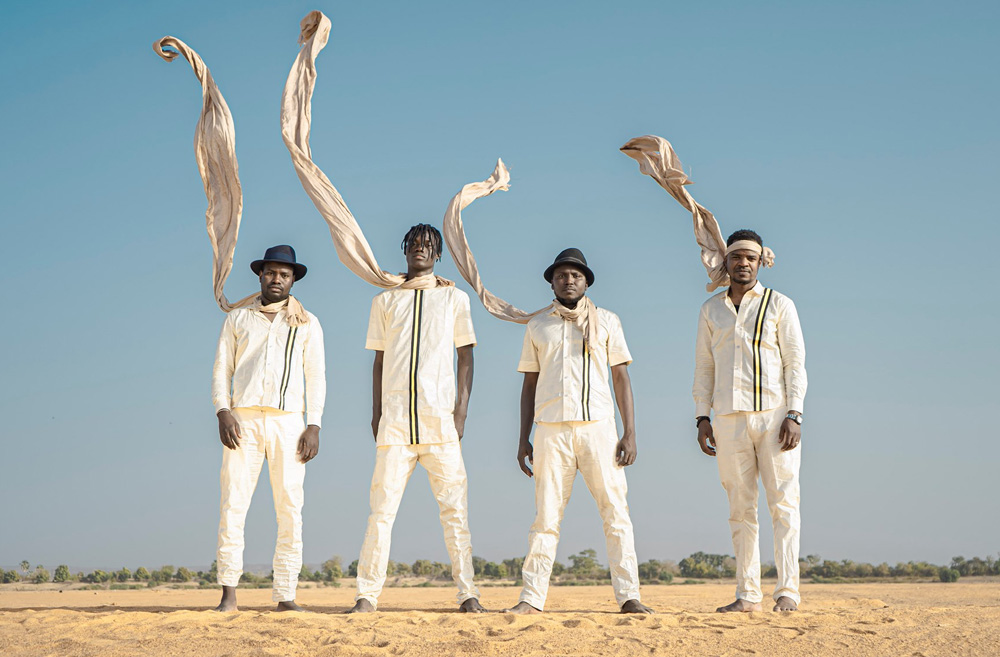Songhoy Blues - Optimisme (Transgressive Records, 2020)
Songhoy Blues is a desert blues music group from Timbuktu, Mali. The band was formed in Bamako after they were forced to leave their homes during the civil conflict and the imposition of Sharia law.

Songhoy Blues released their debut album, “Music in Exile” via Transgressive Records in February 2015, while Julian Casablancas‘ Cult Records partnered with Atlantic Records to release the album in North America in March 2015. The group is one of the principal subjects of the documentary film “They Will Have To Kill Us First”. Songhoy Blues Are sons of Mali. Groundbreaking Artists. Refugees. Virtuosos. Survivors. Rock Stars.
Unforgettable and undeniable, Songhoy Blues represent the future of African rock n’ roll and release their third album, “Optimisme”.
This 11-song, multilingual album marks a real musical breakthrough. Musically harder, steeped in deep traditions of classic Malian music and desert blues and fused with an urgent and super-charged sound of now, the album was produced by Matt Sweeney of beloved indie rockers Chavez, who’s worked with a host of celebrated artists including Johnny Cash, Run the Jewels, El-P, Cat Power and Will Oldham, and recorded and mixed by Daniel Schlett (The War on Drugs, Modest Mouse, GhostfaceKillah) in Brooklyn, NY.

Songhoy Blues is a band whose experiences in Mali have opened their eyes to universal problems plaguing people everywhere.
Using the pain and lessons learned from having to leave their hometowns in northern Mali, the band realizes that human rights is a concept that extends far beyond what they have seen with their own eyes and far beyond just the borders of Mali. In order for the band to see their homes restored, they understand the fight must be fought on all fronts, for everybody across the spectrum. They are no longer refugees or exiles or four people with instruments—they are Songhoy Blues, a musical voice for empowerment and equality.
Working with Matt Sweeney, who encouraged the band to make the album they want to make, Optimisme confronts our world today.
On “Badala” and “Gabi,” Songhoy Blues seeks the empowerment of women, asking for centuries-old misogynistic practices to be done away with. With “Worry,” the band advises both the young and the old that positive vibes and persistence are the best tools to fight our struggles. In “Assada,” the band praises and thanks the everyday warriors who wake up everyday to sweat for the betterment of their communities and in “Dournia,” the band laments the lack of compassion and empathy between humans today in the face of increasing materialism and selfishness. “Bon Bon” warns of being fooled by shiny promises, and in “Barre” the band asks for the youth to get involved at home for change while warning off those who wish to divide in “Fey Fey.”
Each time Songhoy Blues steps to the mic on “Optimisme” the band confronts, consoles, praises, thanks, and encourages the listener toward a better world tomorrow.
NMR (photo: Songhoy Blues, Eric Hobson)
















